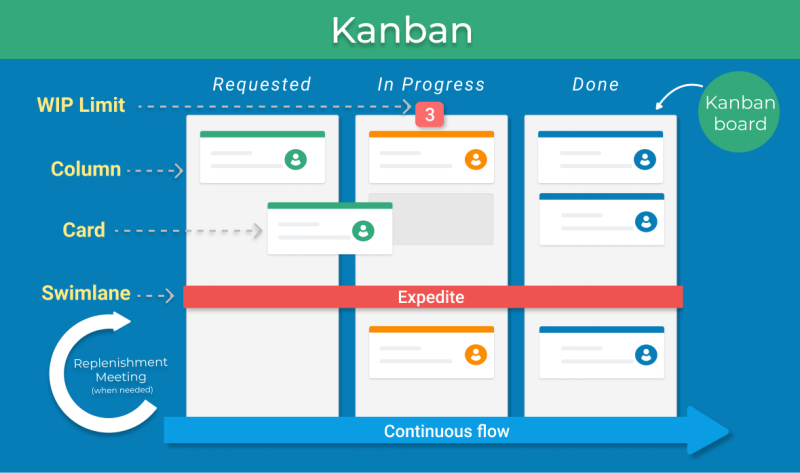The lessons learned review held as part of a project close is an important and valuable experience for all project members. No matter the size or subject of the effort, there are always things that went well and things that could have gone better. Understanding the complete picture helps project managers and project teams learn from the experience and take those lessons to apply them to future work.
Traditionally, the lessons learned review is held at the end of a project. It is a discussion of the knowledge gained from the process of conducting a project, the successes and failures as a team, and an effort to repeat the positive aspects and not repeat the mistakes. This is also called a post-mortem, after-action review, wrap-up, project success meeting, or a retrospective in agile.
Read more: Agile Scrum Ceremonies & Meetings
Benefits of Discussing Lessons Learned
There are many benefits to be had when reviewing a project as a whole, and revisiting project facts such as goals, timeline, budget, milestones, and success metrics. Diving into the details makes clear what the goal was, what occurred and why, what worked and what did not. Put things into context by addressing these questions:
- What did you set out to do?
- What actually happened?
- Why did it happen?
- What are you going to do next time?
How to Host a Lessons Learned Meeting
Create and share an agenda beforehand that includes the following sections to be covered within a certain timeframe, usually 60 to 90 minutes:
- Brief welcome
- Project overview, including milestones and timeline
- What did you learn?
- Successes
- Challenges
- Other Insights
- Priorities: What matters most?
- Changes to make and action planning
- Identify the items to take into future projects
- Closing and thank you
Read more: Establishing Meeting Cadence for Remote Project Teams
Encouraging Engagement
Begin by focusing on the positive outcomes. This can be borrowed from an agile retrospective and applied to any project. Regardless of what you discover, understand and truly believe that everyone did the best job they could given what was known at the time, and taking into account skills and abilities, resources available, and the situation at hand. At the end of a project everyone knows so much more. Naturally you will discover decisions and actions you wish you could do over. This is wisdom to be celebrated, not judgement used to embarrass.
Plan a brief icebreaker activity. For example, sports — talk about a current sporting event and ask people to participate and each answer a question, such as what is their favorite team or who do they think will win a game or championship.
Include a check-in activity. In roundtable style, ask what is one word that they can use to describe how the project went. The first word that comes to mind is usually pretty honest and accurate.
The main course. This is the opportunity to gather data, check on individual morale, discuss positive aspects, recognize people, and seek improvements. Drive the team to reflect about the given context, reinforce a shared vision, and generate insights. This is the point where team members feel heard. Each individual is acknowledged and is visible to the whole team for their five minutes of fame. If the team expresses frustration or brings up blockers, you can channel this energy into a discussion about how to do better going forward.
Actionable items. Create specific action items from the lessons learned review and continue to work on the backlog. Send out meeting notes to the team they can use as a reference for future work and to recall specifics.
Questions to Ask During a Lessons Learned
There are many questions to ask during a lessons learned meeting to get the valuable information you want. Often, it may be helpful to ask the same questions in different ways — this can help team members see the topic in a different light. The table below offers examples of questions to ask, separated by topic. Use this list to guide your discussions:
Project managers have the power to encourage their teams to learn from mistakes and successes. Put emphasis on what the team did correctly, as this can segue naturally into what was not done well and could use improvement. The goal should be to provide meaningful and constructive feedback and lead by example.
Why the Lessons Learned Phase Is Often Skipped
There are many reasons the lessons learned may be skipped. Often it is due to time pressure, immediate positive results, burnout over a long period of time, or the challenge of getting everyone together one more time.
Not everyone sees the benefit of revisiting something that was just completed, especially if there is a post-launch monitoring phase or pilot in progress. Sometimes it is simply that too much time has passed before lessons learned are considered at all. You will achieve the best results immediately following the project end if you include lessons learned as part of the closing process.
Read next: How to Successfully Host a Project Kickoff Meeting












